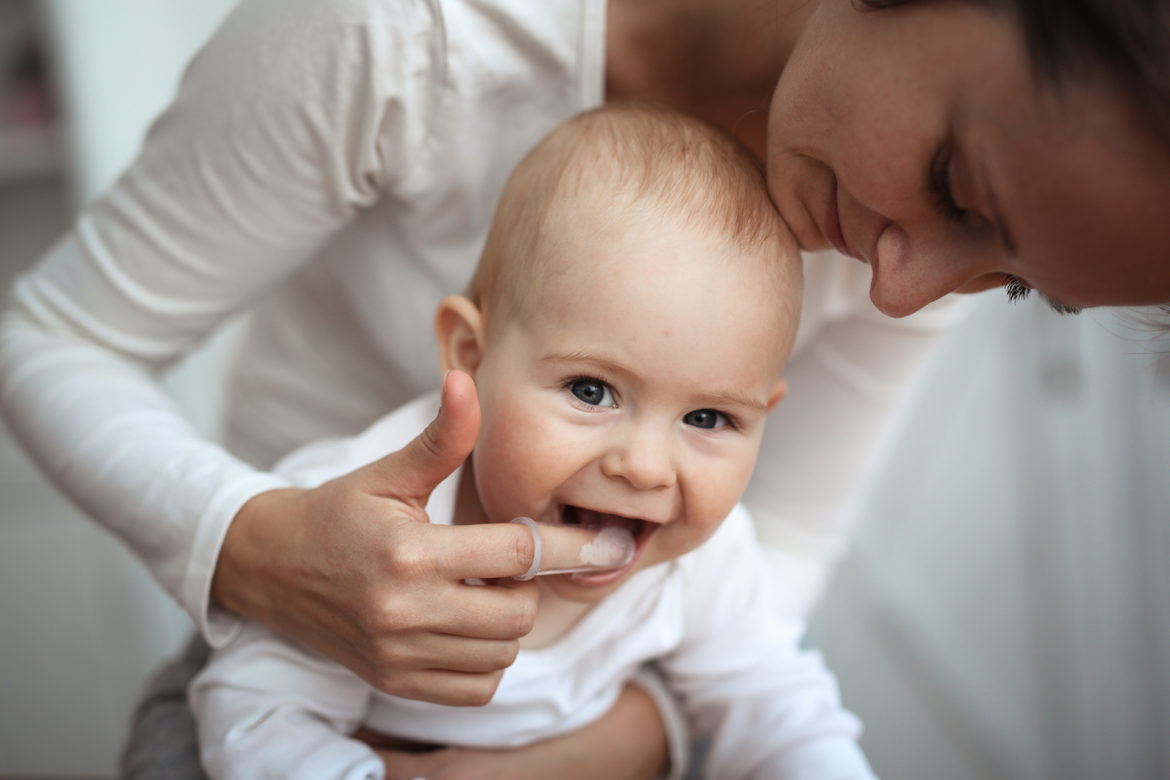Baby bottle tooth decay occurs when sweetened liquids or those with natural sugars, such as milk, formula, and fruit juice, cling to infants’ teeth for a long period of time. Bacteria thrive on this sugary debris and create acids that begin attacking the teeth.
Children whose pacifiers are dipped in sugary drinks or consume sugary drinks prior to napping are more at-risk. While it is often the front two teeth that are the most affected region, any teeth can be affected by baby bottle tooth decay.
Oftentimes, we look at baby teeth as temporary and view their health as unimportant, but this simply isn’t true.
Baby teeth are important to the growth and development of children and serve as place holders for adult teeth. Unhealthy baby teeth may lead to problems such as:
- Poor eating habits
- Speech problems
- Crooked teeth
- Damaged adult teeth
When baby teeth are damaged, the likelihood of adult teeth coming in crooked is greatly increased and can lead to expensive orthodontic needs in the future.
How Can I Prevent or Treat Baby Bottle Tooth Decay?
Luckily, knowing how to care for your baby’s teeth greatly reduces the risk of baby bottle tooth decay.
Here’s how you can implement good oral hygiene at a young age:
- Wipe your baby’s teeth off using a clean gauze pad or washcloth after feedings and before bed or nap time.
- Make sure your child is getting enough fluoride. If your local water supply does not contain fluoride, ask your dentist or doctor if you need to use a supplement. Fluoride is a natural way to prevent cavities.
- Begin brushing your baby’s teeth without toothpaste as soon as the first tooth comes in. If you choose to use toothpaste, use a fluoride-free, baby toothpaste.
- Clean and massage gums in areas without teeth.
- Once two teeth touch, it’s time to start flossing your child’s teeth.
- Schedule regular dentist visits once your child’s first tooth erupts, or by their first birthday.
Here are other tips to prevent baby bottle tooth decay:
- Never put sugary drinks in your child’s bottle. Only use bottles for milk, water, formula, and special electrolyte-containing drinks if your child has diarrhea.
- Never allow your child to fall asleep while sipping anything other than water.
- Never dip or coat a child’s pacifier in anything sugary.
- Use half-juice half-water solutions to interest your child in a ‘sippy-cup,’ but stay away from this solution in a bottle.
- Soft drinks are never recommended for children, as they carry no nutritional value.
If your child already drinks sugary drinks from a bottle, it’s never too late to begin reducing the amount of sugar in their diet. Begin diluting the sugary substance with water over the next 2-3 weeks and then begin serving only water.
How Do I Know When to Take my Baby to the Dentist?
If your child’s teeth begin to appear uncharacteristically white, yellow or brown, or your child is experiencing pain, they may be facing symptoms of baby bottle tooth decay. Your dentist can provide treatment for the decay that would vary based on the severity of the decay.
White spots may become prevalent on the enamel, at which point fluoride can serve as a solution to this problem, coupled with a reduction in sugar consumption and practicing good oral hygiene.

